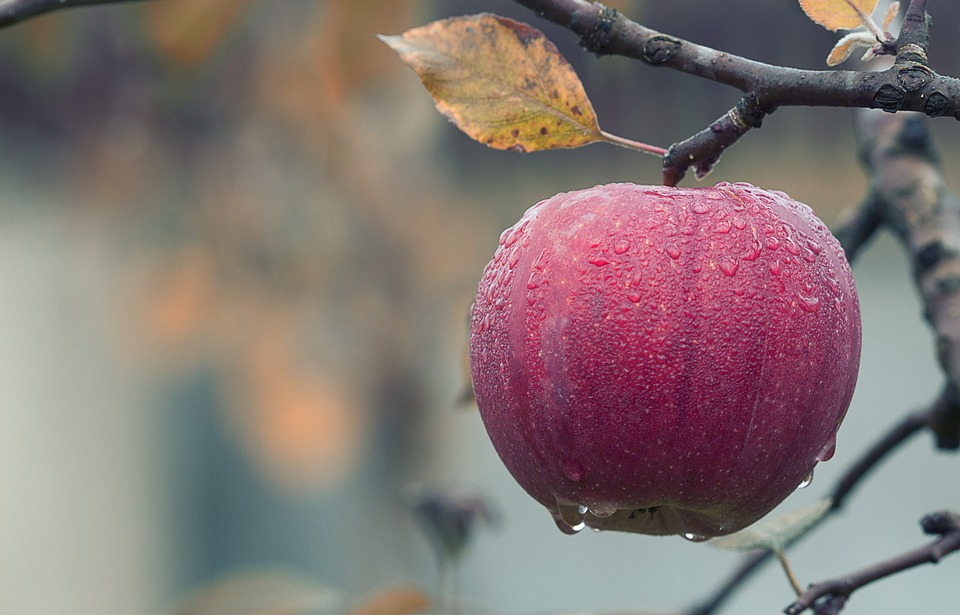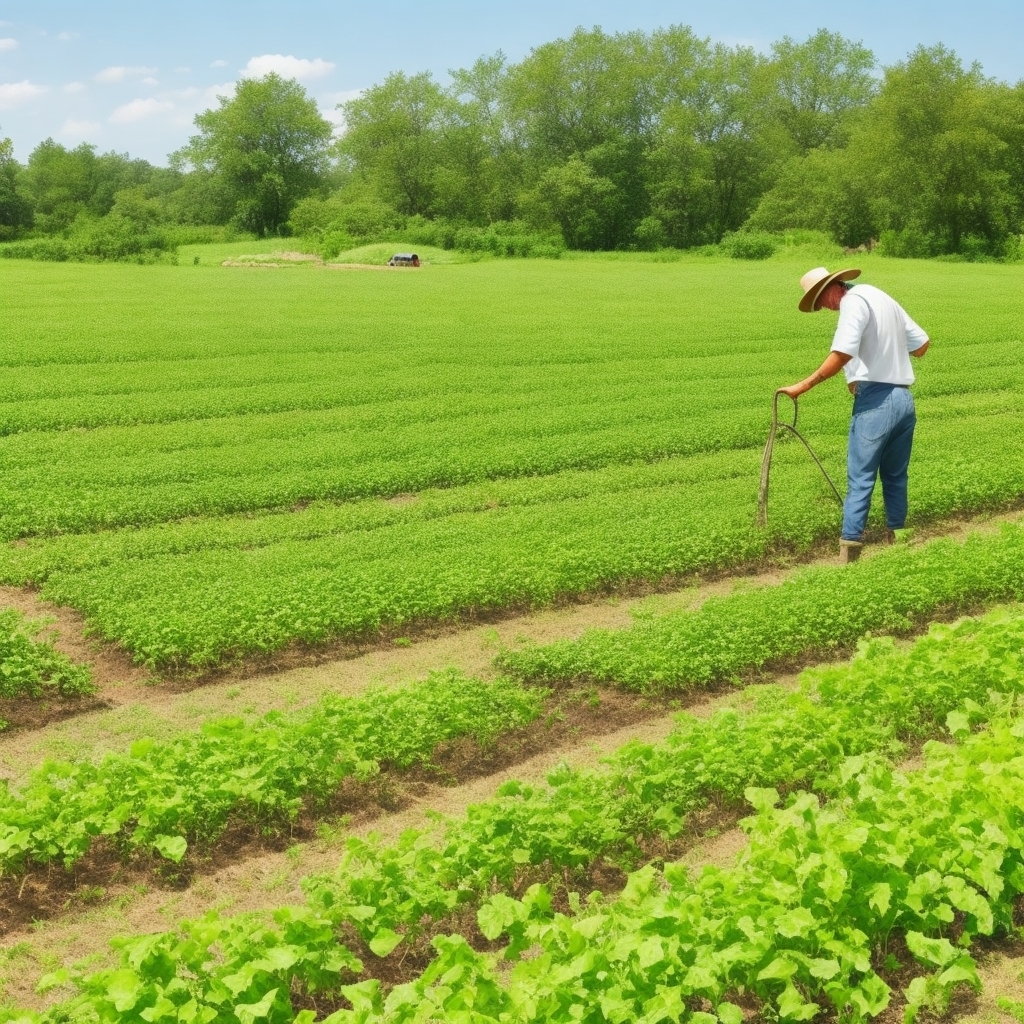How to Make Sustainable Farming a Reality – Sustainable farming is gaining momentum as an essential approach to agricultural practices. As concerns about the environment, food security, and resource conservation continue to grow, the need to make sustainable farming a reality becomes paramount. This article explores the principles of sustainable farming, the implementation of sustainable practices, the benefits it offers, challenges faced, government support, technological advancements, success stories, and the future of sustainable farming.
Understanding Sustainable Farming
Sustainable farming is a holistic approach to agriculture that aims to produce food while minimizing environmental impact, promoting economic viability, and enhancing social well-being. It is guided by principles such as biodiversity, soil health, water conservation, and responsible resource management. By adopting sustainable farming practices, farmers can ensure the long-term productivity of their land while preserving natural resources for future generations.
Implementing Sustainable Farming Practices
- Conservation agriculture: Conservation agriculture involves minimizing soil disturbance, maintaining crop residues, and practicing crop rotation. These techniques help improve soil fertility, reduce erosion, and enhance water retention.
- Organic farming: Organic farming relies on natural inputs and techniques to cultivate crops and raise livestock. It avoids the use of synthetic pesticides and fertilizers, focusing instead on biological pest control and nutrient cycling.
- Crop rotation and diversification: Crop rotation involves growing different crops in a sequence to improve soil health, reduce pest and disease pressure, and increase overall farm productivity. Diversification refers to the integration of crops, livestock, and other agricultural activities to enhance sustainability and resilience.
- Water and soil management: Sustainable farming emphasizes efficient water use through practices like drip irrigation, rainwater harvesting, and precision watering. Soil management techniques, such as cover cropping and composting, help maintain soil structure and fertility.
- Integrated pest management: Integrated pest management combines biological, cultural, and chemical methods to control pests and diseases. This approach minimizes reliance on synthetic pesticides and promotes natural pest control mechanisms.
Benefits of Sustainable Farming
Sustainable farming offers numerous benefits that extend beyond individual farms and impact society as a whole.
- Environmental benefits: By prioritizing biodiversity, soil health, and water conservation, sustainable farming reduces pollution, soil erosion, and water contamination. It promotes the preservation of habitats and supports wildlife conservation.
- Economic benefits: While there may be initial investment costs, sustainable farming practices often lead to improved productivity, reduced input costs, and increased profitability in the long run. Additionally, sustainable products often command premium prices in the market.
- Social benefits: Sustainable farming fosters community development, creates employment opportunities, and enhances food security. It promotes healthier food choices and strengthens the connection between consumers and farmers.
Challenges in Adopting Sustainable Farming
Despite the benefits, transitioning to sustainable farming practices can be challenging for farmers.
- Limited awareness and education: Lack of knowledge and understanding about sustainable farming practices can hinder adoption. Educational initiatives and training programs are essential to address this challenge.
- Initial investment and transition period: Implementing sustainable practices may require upfront investments in infrastructure, equipment, and training. Farmers may also face challenges during the transition period as they adjust to new techniques and practices.
- Market demand and consumer awareness: The demand for sustainable products is growing, but consumer awareness and willingness to pay a premium can vary. Creating market incentives and educating consumers about the benefits of sustainable farming are crucial.
Government Initiatives and Support
Governments play a vital role in promoting and supporting sustainable farming practices.
- Subsidies and incentives: Governments can provide financial assistance, subsidies, and incentives to encourage farmers to adopt sustainable practices. This support can help offset the initial investment costs and make sustainable farming more economically viable.
- Research and development programs: Investing in research and development programs helps develop innovative techniques, technologies, and best practices for sustainable farming. Governments can fund research institutions and collaborate with farmers to drive advancements.
- Policy frameworks and regulations: Governments can establish policy frameworks and regulations that promote sustainable farming. These policies may include environmental standards, organic certifications, and guidelines for responsible resource management.
Role of Technology in Sustainable Farming
Technology plays a crucial role in advancing sustainable farming practices.
- Precision agriculture: Precision agriculture utilizes technologies like GPS, remote sensing, and data analytics to optimize resource use, monitor crop health, and improve overall farm efficiency. This reduces input waste and enhances productivity.
- IoT and sensor technology: Internet of Things (IoT) and sensor technology enable real-time monitoring of environmental conditions, soil moisture, and crop health. This data-driven approach helps farmers make informed decisions and implement targeted interventions.
- Farm management software: Farm management software streamlines farm operations, including inventory management, record keeping, and financial planning. It improves efficiency and allows farmers to track and analyze their sustainability performance.
Success Stories in Sustainable Farming
Several success stories highlight the transformative potential of sustainable farming practices.
- Case study 1: Organic farming in Denmark
– Discuss the success of Denmark’s organic farming sector, including the growth in organic farms, consumer demand, and government support.
– Highlight the environmental and economic benefits achieved through organic farming practices.
- Case study 2: Agroforestry in Brazil
– Explore the implementation of agroforestry systems in Brazil, combining tree cultivation with agricultural crops.
– Discuss the positive outcomes of agroforestry, such as improved soil fertility, biodiversity conservation, and enhanced income for farmers.
Future of Sustainable Farming
The future of sustainable farming holds tremendous potential for further advancements.
- Advancements in sustainable farming practices: Ongoing research and innovation will continue to improve sustainable farming techniques and systems, enabling farmers to achieve higher yields while minimizing environmental impact.
- Collaboration and knowledge sharing: Collaboration among farmers, researchers, and organizations will facilitate the sharing of best practices, success stories, and lessons learned. This collective effort will drive the widespread adoption of sustainable farming practices.
- Consumer-driven demand for sustainable products: As consumers become more conscious of their food choices, the demand for sustainably produced goods will increase. This shift in consumer behavior will further incentivize farmers to embrace sustainable farming practices.
Conclusion
Making sustainable farming a reality is crucial for ensuring a sustainable and resilient food system. By implementing sustainable practices, farmers can protect the environment, improve their economic viability, and contribute to social well-being. Government support, technological advancements, and consumer demand play vital roles in driving the transition to sustainable farming. By working together, we can create a future where sustainable farming is the norm, benefiting both present and future generations.
**FAQs**
- What are the key principles of sustainable farming?
– Answer: The key principles of sustainable farming include biodiversity conservation, responsible resource management, soil health, water conservation, and ecological balance.
- How can sustainable farming benefit the environment?
– Answer: Sustainable farming reduces pollution, soil erosion, and water contamination. It preserves habitats, promotes biodiversity, and supports wildlife conservation.
- Is sustainable farming economically viable?
– Answer: While there may be initial investment costs, sustainable farming practices often lead to improved productivity, reduced input costs, and increased profitability in the long run.
- Are there any challenges in transitioning to sustainable farming?
– Answer: Yes, challenges include limited awareness and education, initial investment costs, and the need to create market demand and consumer awareness for sustainable products.
- How can consumers support sustainable farming?
– Answer: Consumers can support sustainable farming by choosing sustainably produced goods, seeking organic and locally sourced products, and supporting farmers’ markets and community-supported agriculture initiatives.




